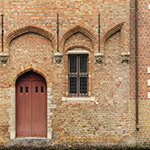Euroacademia Conferences
 Europe Inside-Out: Europe and Europeanness Exposed to Plural Observers (9th Edition) April 24 - 25, 2020
Europe Inside-Out: Europe and Europeanness Exposed to Plural Observers (9th Edition) April 24 - 25, 2020 Identities and Identifications: Politicized Uses of Collective Identities (9th Edition) June 12 - 13, 2020
Identities and Identifications: Politicized Uses of Collective Identities (9th Edition) June 12 - 13, 2020 8th Forum of Critical Studies: Asking Big Questions Again January 24 - 25, 2020
8th Forum of Critical Studies: Asking Big Questions Again January 24 - 25, 2020 Re-Inventing Eastern Europe (7th Edition) December 13 - 14, 2019
Re-Inventing Eastern Europe (7th Edition) December 13 - 14, 2019 The European Union and the Politicization of Europe (8th Edition) October 25 - 26, 2019
The European Union and the Politicization of Europe (8th Edition) October 25 - 26, 2019 Identities and Identifications: Politicized Uses of Collective Identities (8th Edition) June 28 - 29, 2019
Identities and Identifications: Politicized Uses of Collective Identities (8th Edition) June 28 - 29, 2019 The European Union and the Politicization of Europe (7th Edition) January 25 - 26, 2019
The European Union and the Politicization of Europe (7th Edition) January 25 - 26, 2019 7th Forum of Critical Studies: Asking Big Questions Again November 23 - 24, 2018
7th Forum of Critical Studies: Asking Big Questions Again November 23 - 24, 2018 Europe Inside-Out: Europe and Europeanness Exposed to Plural Observers (8th Edition) September 28 - 30, 2018
Europe Inside-Out: Europe and Europeanness Exposed to Plural Observers (8th Edition) September 28 - 30, 2018 Identities and Identifications: Politicized Uses of Collective Identities (7th Edition) June 14 - 15, 2018
Identities and Identifications: Politicized Uses of Collective Identities (7th Edition) June 14 - 15, 2018
The Bektashi Order: The Development of Bektashi Order among the Albanian Speaking Population in the Balkan Region
-
-

-
Presentation speakers
- Kestrina Peza, Institute of Near Eastern and African Studies at Charles University in Prague, Czech Republic
- Download presentation
Abstract:
While referring to Albanians, many politicians and journalists in Europe and abroad have a tendency to mention that Albanian population in Albania, Kosovo and Macedonia are more or less Muslims. Unfortunately nowadays the world understands that to be a Muslim for sure means the same as the orthodox Muslims in Iraq or Afghanistan. But the reality is absolutely different. The Islam in Albanian speaking countries (in Albania, Kosovo and Macedonia) spread through Sufi orders where the most significant and visible especially in Albania was Bektashi order. The first appearance of this order in the Balkan countries is known since the 13th century. This order was more adjustable for the Albanian Christian population than the pure Islam, because in reality the doctrine of the Baktashians was and is a mixture of Islam, Christianity and Paganism; it is known for its tolerance toward other religions, equality of rights between man and woman within the order, different approach to the Islam rules etc. This order had a very tight connection to the Janissaries, the infantry units of the Ottoman Empire coming from the Christian population of the Ottoman Empire. Janissaries were abolished in 1826 and many clerics of the Bektashi order came to Albania to escape from the persecution of Sultan Mahmud II. The self declared Albanian King Zogu I allowed Bektashians in 1929 to build their world centre in Tirana, Albania. During World War II the members of this order were supporting and fighting together with the forces of Albanian Nationalistic Movement for the liberation of Albania. Enver Hoxha´s regime abolished religions in 1967 and even this order faced a very hard persecution by the regime. From 1992 the Bektashi order is trying to organize itself and to spread its peaceful and tolerant doctrine among other doctrines of the Islam religion. -
Related Presentations


















